If throwing away limp lettuce, fuzzy strawberries, and shriveled cucumbers has become routine for you, know that you’re not the only one. A lot of fresh fruits and vegetables wind up as waste without ever being consumed.
However, by making just a few minor adjustments, you can extend the life of your groceries twofold, helping you economize and significantly reduce food wastage.
Use the Right Containers
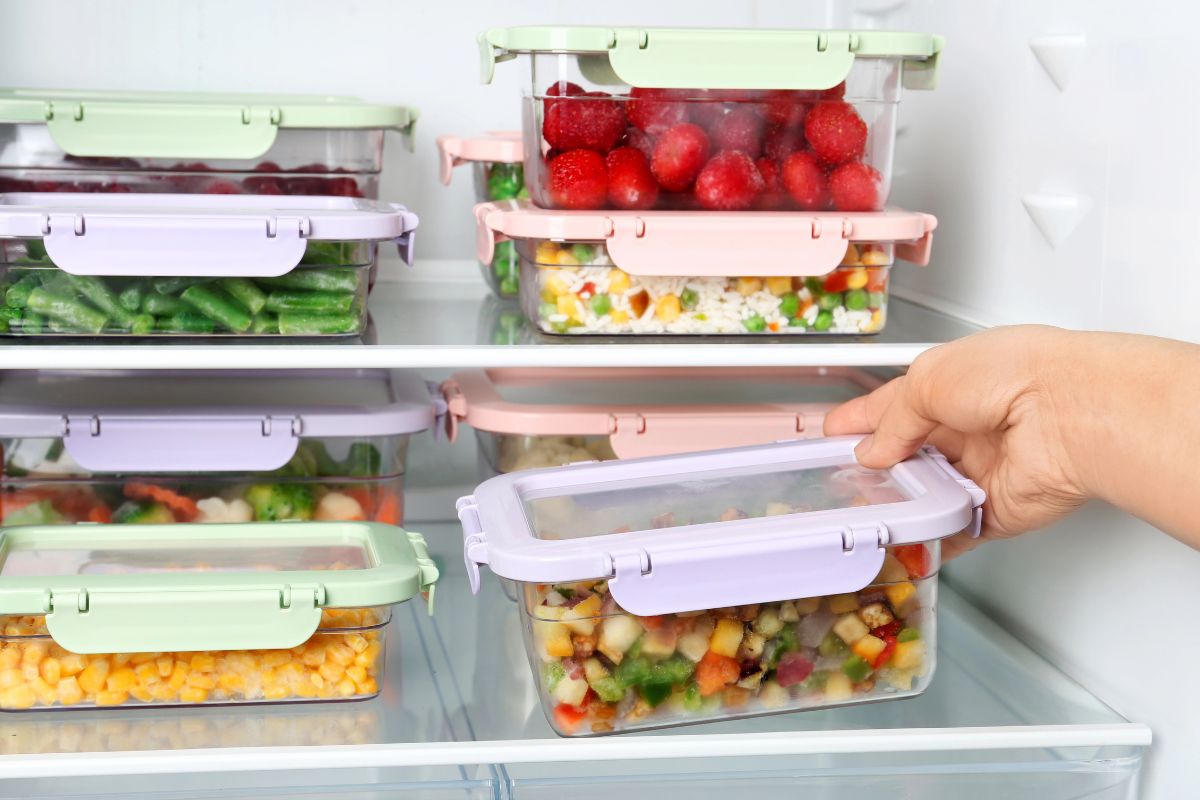
The kind of container you choose can significantly impact how long your fruits and vegetables remain fresh. Rather than storing leafy greens in their original plastic bags, opt for sealed containers that include a piece of paper towels inside. This paper towel helps soak up extra dampness, stopping the greens from becoming limp and maintaining their crunchiness.
When dealing with berries, make sure to rinse and completely dry them prior to placing them into a glass jar along with a sheet of paper towel. This technique will help maintain their texture and freshness for more than seven days without turning soft.
Store the Right Way
Not every type of produce should be stored identically. Putting everything in the refrigerator may appear as the most cautious approach, yet this isn’t necessarily ideal. Certain fruits and vegetables thrive better when left out at room temperature.
For instance, bananas should be placed on the counter top, isolated from other items, to prevent them from becoming overly ripe.
This
helpful guide
reveals the optimal method for keeping various commonly used fruits and veggies fresh, along with guidance on which items shouldn’t be stored together.
Vinegar Rinse for Fruits and Vegetables
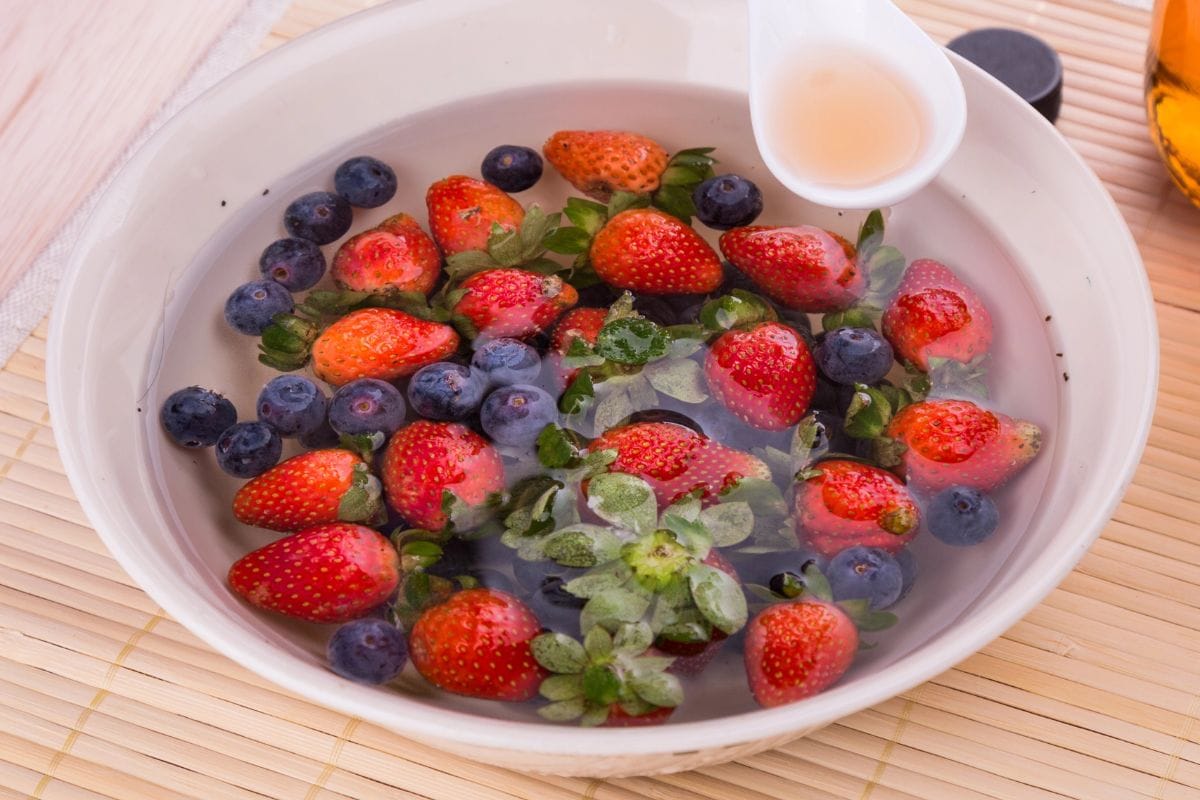
A great method for prolonging the freshness of your berries and leafy vegetables involves using a vinegar rinse. This process leverages the acidic properties of vinegar to eliminate mold spores and harmful bacteria responsible for decay.
How to Perform a Vinegar Rinse
- Combine 1 portion of white vinegar with 3 portions of water in a big bowl.
- Dip your fruits or leafy greens into the water and swirl them around lightly.
- Allow them to soak for approximately 5 minutes.
- Thoroughly rinse with cold water to eliminate the vinegar flavor.
- Spread them out on a clean towel to thoroughly air dry before putting away.
Mason Jar Vacuum Sealer
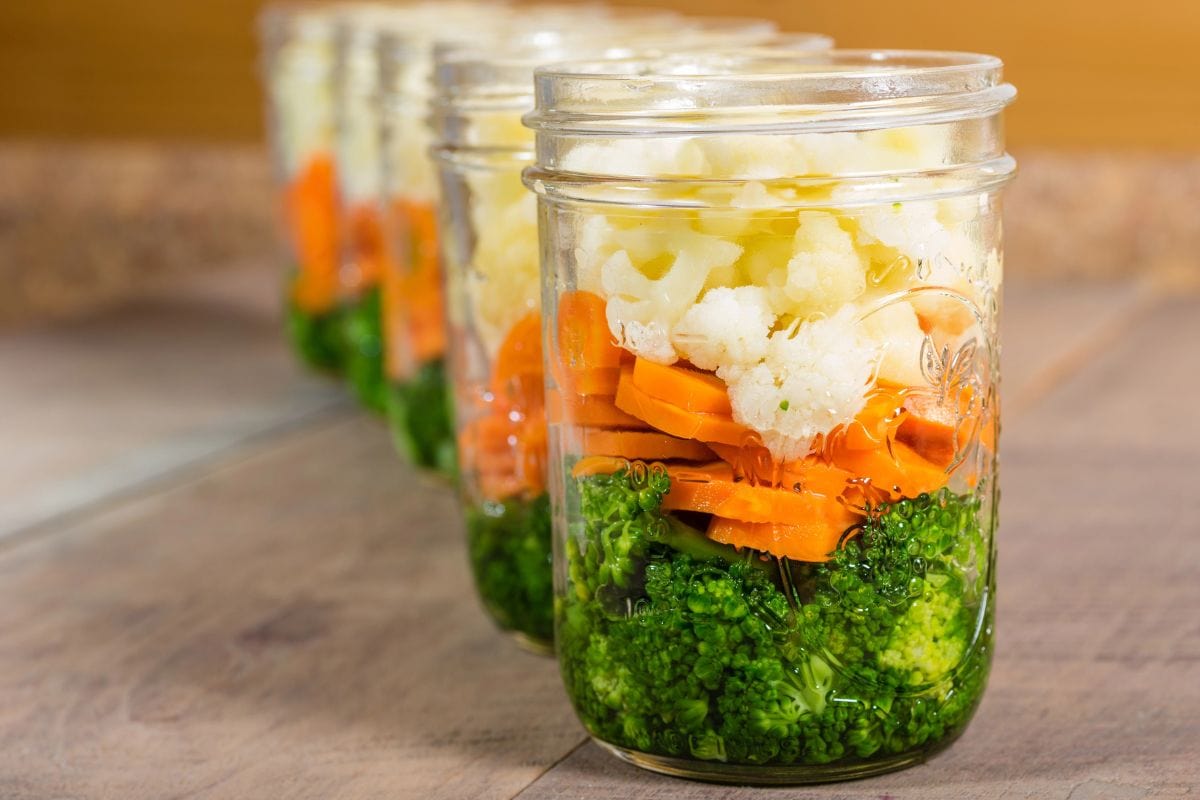
To maintain the freshness of your produce for extended periods, consider keeping it in Mason jars and securing these containers using a Mason jar vacuum sealer. This technique ensures an air-tight closure, greatly prolonging the lifespan of your fruits and veggies.
I purchased mine from Amazon for about $20, which is significantly more affordable compared to buying a vacuum sealing device.
Although employing a vacuum sealer machine or canning extends the life of produce, I discovered that the Mason jar vacuum sealer kept my berries, greens, and vegetables fresh much longer in the refrigerator.
Revive Wilted Veggies
If your vegetables have wilted, they’re not necessarily ruined. You can revive them by soaking them in an ice-water bath for about 15-20 minutes. Carrots, celery, and leafy greens particularly benefit from this method.
Rather than discarding them, attempt rehydration first. You might be amazed at how frequently this simple trick proves effective.
Freeze Whatever You Can’t Utilize
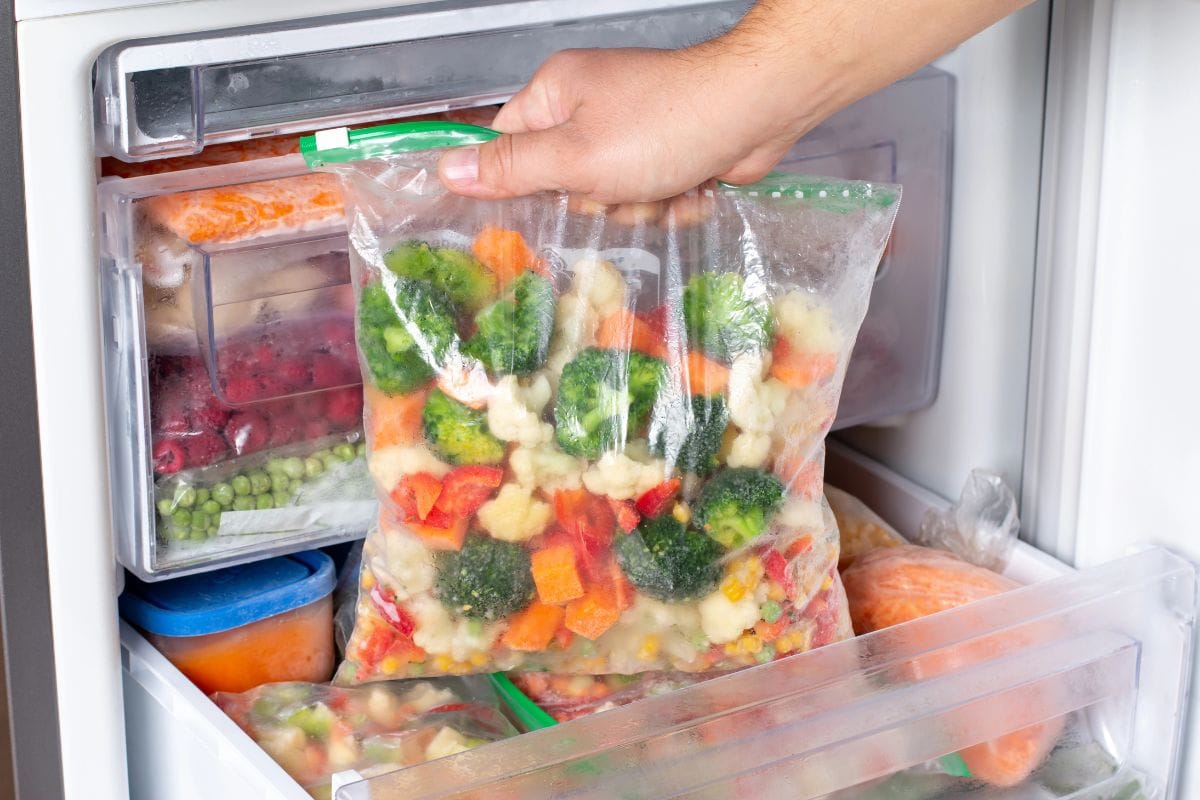
If you realize you won’t be able to finish an entire bag of spinach or a bunch of herbs before they spoil, consider freezing them.
Here’s how you can freeze herbs:
- Dice the herbs and place them in ice cube trays.
- Pour the olive oil or water into the trays.
- Place in a labeled freezer bag and freeze.
For spinach or kale, briefly scald them in simmering water, then drain and store them in sealed bags for freezing.
When Should You Clean Your Fruits and Vegetables?
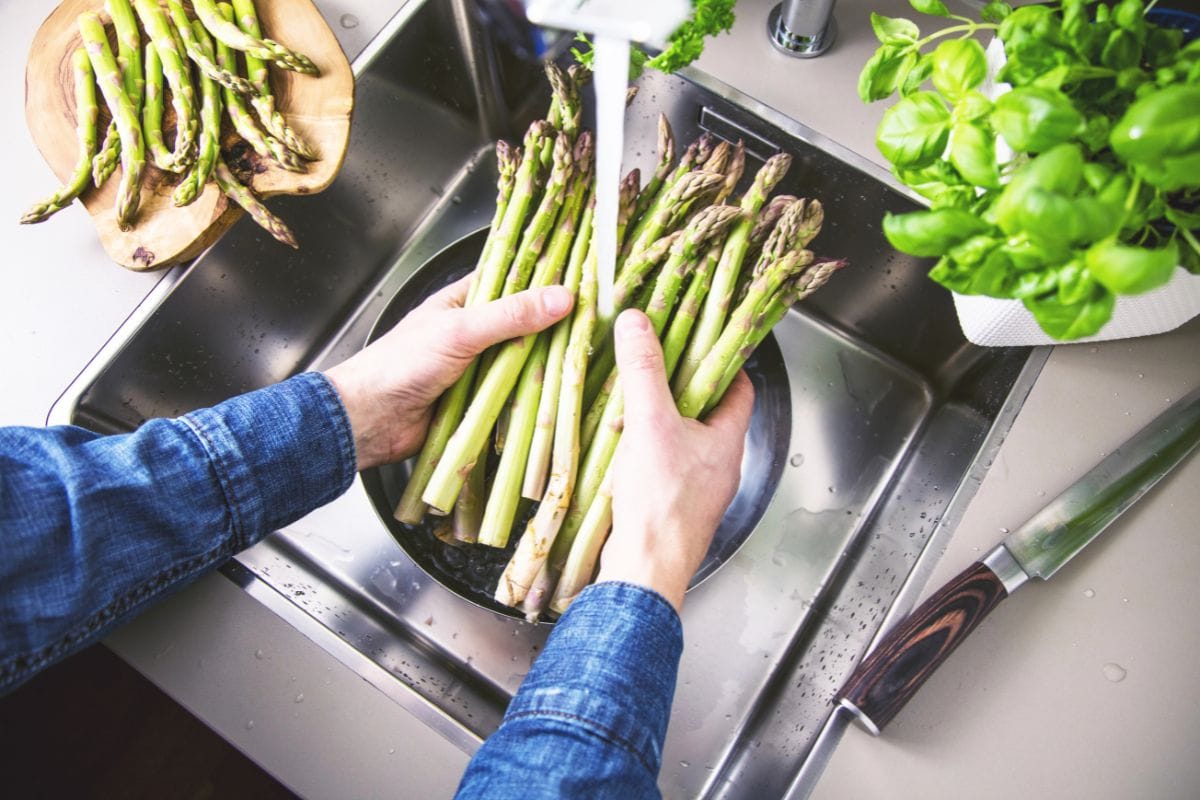
Understanding when to clean your fruits and vegetables is essential for extending their freshness. While certain produce needs immediate washing, doing so with others can cause quicker spoilage due to increased dampness.
Wash Right Away
-
Berries and Leafy Greens
: Rinse and let them sit in vinegar. -
Herbs (Cilantro, Parsley, Mint):
Clean, dry, then enclose in a somewhat moistened paper towel or stand upright in water similar to a floral bouquet for storage.
Wait to Wash Until It’s Time to Use
-
Mushrooms:
Water makes them slippery, so simply scrape away the dust. -
Peppers:
Cleaning too soon can lock in dampness, resulting in mildew. -
Carrots, Radishes, and Potatoes:
Water accelerates decay; opt for brushing away debris instead. -
Cucumbers and Zucchini:
Cleaning before storage can lead to the development of soft areas.
Simple Strategies for Extending the Life of Your Fruits and Vegetables
-
Avoid overcrowding:
Allow the produce room to breathe. -
Check for mold:
A single rotten apple can ruin the entire batch. -
Move older items to the forefront:
Utilize whatever you purchased initially to prevent wastage.
By following these easy guidelines, you could potentially extend the lifespan of your fresh produce twofold, thereby reducing food waste and making your groceries go farther.


